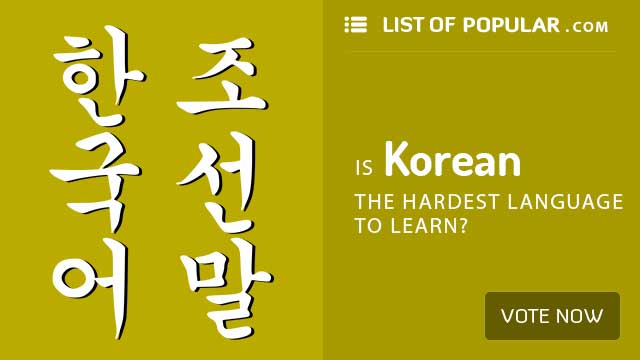Is Korean the hardest language to learn?
"Is Korean the hardest language to learn?" This question sparks curiosity and debate among language learners worldwide. Korean, with its unique writing system, intricate grammar, and cultural nuances, presents notable challenges for non-native speakers. However, determining whether it is the absolute hardest language to learn requires a comprehensive examination of its distinct features and contextual factors.
One of the initial obstacles learners face when tackling Korean is its writing system, Hangul. Developed in the 15th century under the reign of King Sejong the Great, Hangul is celebrated for its simplicity and phonetic nature. However, mastering the characters and understanding their phonetic values can still pose a challenge, particularly for learners accustomed to alphabetic writing systems.
Moreover, Korean's grammar structure is known for its complexity. The language utilizes agglutinative grammar, where words are formed by adding suffixes to root morphemes. Verbs conjugate based on tense, mood, aspect, and honorifics, and sentence structure follows a subject-object-verb (SOV) order. Understanding and applying these grammatical rules require dedicated study and practice.
Additionally, Korean features various levels of formality and honorifics, known as "jondaenmal" (???) and "banmal" (??), respectively. Mastering the appropriate level of politeness and addressing others accordingly is essential for effective communication in Korean society.
Despite these challenges, labeling Korean as the hardest language to learn overlooks the subjective nature of language acquisition. Factors such as linguistic background, exposure to the language, motivation, and learning strategies play a significant role in determining the difficulty of learning Korean.
For example, speakers of languages with similar grammar structures, such as Japanese or Turkish, may find certain aspects of Korean more intuitive compared to speakers of languages with different linguistic structures. Similarly, learners immersed in Korean-speaking environments or with access to quality language resources may overcome obstacles more readily than those without such advantages.
Furthermore, other languages boast their own unique challenges that rival or surpass those of Korean. Languages like Arabic with its intricate morphology and writing system, Mandarin Chinese with its tonal nature and logographic script, or Hungarian with its complex agglutinative grammar are often cited as equally or more challenging for learners.
In conclusion, while Korean presents significant hurdles for learners, labeling it as the hardest language to learn requires careful consideration of various factors. Ultimately, the difficulty of learning a language is subjective and varies from person to person. Embracing the journey of language learning as a rewarding and enriching experience can empower learners to overcome challenges and achieve proficiency in Korean or any other language they choose to pursue.

